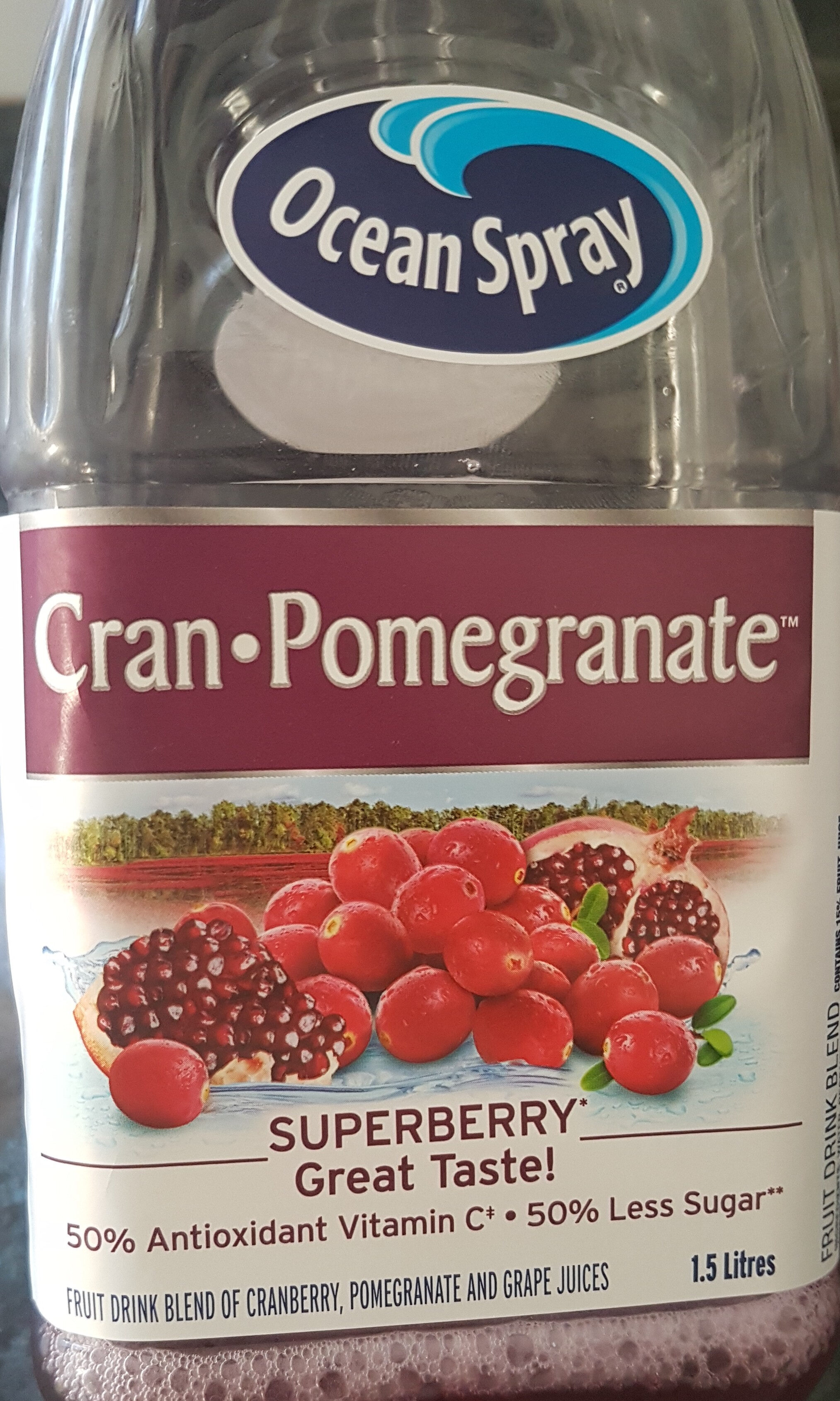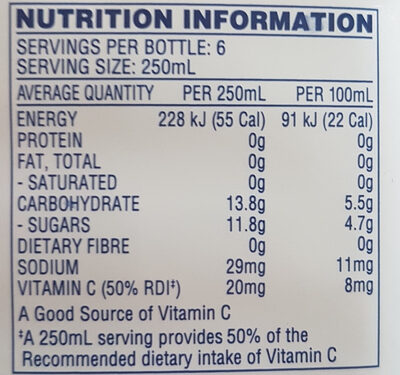Cran-Pomegranate - Ocean Spray - 1.5L
This product page is not complete. You can help to complete it by editing it and adding more data from the photos we have, or by taking more photos using the app for Android or iPhone/iPad. Thank you!
×
Barcode: 9331200430948 (EAN / EAN-13)
Quantity: 1.5L
Packaging: Plastic
Brands: Ocean Spray
Categories: Beverages and beverages preparations, Plant-based foods and beverages, Beverages, Fruit-flavoured beverages
Origin of ingredients: United States
Stores: Woolworths, Coles
Countries where sold: Australia, New Zealand
Matching with your preferences
Environment
Packaging
Transportation
Report a problem
Data sources
Product added on by demont
Last edit of product page on by lcmortensen.
Product page also edited by aleene, archanox, ecoscore-impact-estimator, openfoodfacts-contributors, packbot.
If the data is incomplete or incorrect, you can complete or correct it by editing this page.










